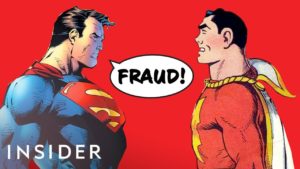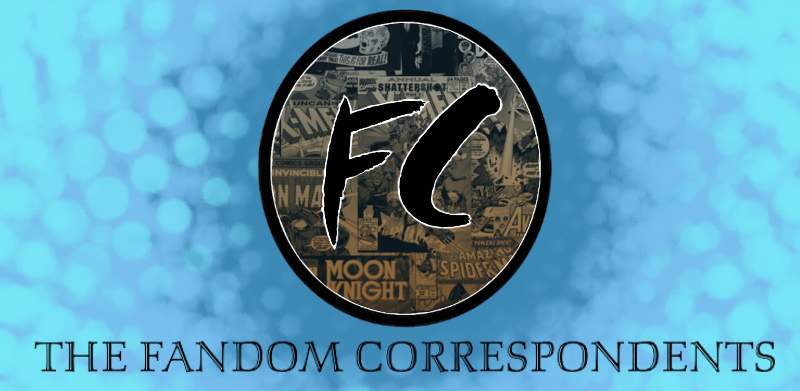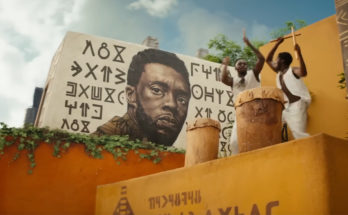Let me start by saying that this piece is going to be all over the place, to the point that some of you may question “what the hell does this guy actually think about this movie?” So let me say definitively now and get it out of the way: I really liked Shazam. Now then, let’s get into the meat of what I thought about the movie and what it can mean for DC/WB and comic book media in general.
Shazam is another step in the right direction for DC movies. It’s focus on faithful character adaptations and coherent storytelling make it a bright point in the DC cinematic universe alongside Wonder Woman and (in my opinion) Aquaman. For those who don’t know, Shazam is about teenage foster kid Billy Batson who is granted great mystical powers from an ancient wizard in order to contend with the dark forces of the world. Over the course of the movie, he learns about heroism, friendship, and family as he struggles to figure out what his new powers really mean. The transformation from 15-year-old kid to Superman-esque superhero offers plenty of comedic antics, and Billy’s journey to find family offers good emotional investment to help balance the movie’s tone. Zachary Levi does a terrific job as the titular character, and Mark Strong offers a solid performance as the movie’s antagonist, a difficult thing to do when Dr. Sivana is not necessarily the most well-known villain in comics. The action is fun, and the movie does a good job building itself up as a self-contained story while still acknowledging the greater DC universe.
Shazam, while fun and entertaining, was a somewhat frustrating experience for me. It almost perfectly adapts a comic story from DC’s New 52 run of comic books, and the characters really do feel like themselves. It made me stop and wonder: Where has this been for the other half of the DCCU? Why did we get such strange, edgy versions of iconic characters like Superman and Batman and outright strange depictions of other beloved characters like the Flash and Lex Luthor when the studio is so capable of producing excellent iterations of characters that–and this is the part that confounds me–they could have potentially done anything with given their relative obscurity? They could have made Billy Batson, an abandoned foster kid left to the system, a blank slate for a good portion of audiences, anything they wanted. So why did I watch him be a bastion of morality just three years after watching Batman gun down more people than most villains have? Shazam is like when an underperforming student works hard and turns in an A+ project: it was great, but now everyone knows what they’re capable of. And we have expectations for the future.

Don’t get me wrong, Shazam isn’t perfect. It had the recurring problem of DC movies with offering a diverse soundtrack while rushing through every song before we really get to enjoy it and its context. Sivana’s transformation from bullied child to insane supervillain was too quick to really appreciate the personal development, and I wish we could’ve seen the genius behind the man rather than his use as a pawn in the greater scheme of things. The conflict felt a little lazy at times, bordering on the problem with the first Antman movie of “This is a villain; he is evil, you see, because we need him to be a villain for the story to work.” Despite these shortcomings, Shazam was a fun ride. And that brings me to my final thought about the movie and why it has potential to be a really important development in the genre.
Shazam won’t win any awards. It probably won’t crack many people’s top 10 comic book movies, and hell, I don’t really expect it to boost the character’s comic book sales all that much if I’m being honest. It was a good movie, not a terrific cinematic experience. And that’s OK, because Shazam did something that a lot of us have recently forgotten about when it comes to comic book movies: it was fun. There was no media milestones set, no emotional devastation, no social statements. And there’s nothing wrong with the comic book movies that have done those things; thank God for the incredible stories and diverse characters we have gotten over the years. But somewhere along the way, from Adam West’s goofy adventures to 2012 Avengers’ critic-defying execution to Infinity War’s massive scale, we began to lose track of the simple things that made us fall in love with superheroes in the first place.
Shazam is going to be doomed by its unfortunate release being flanked by Captain Marvel and Avengers Endgame, two of the most anticipated movies ever, and that destiny is perfectly symbolic of what the movie is: a reminder that a comic book film doesn’t have to be a masterpiece or cultural milestone to be enjoyable. I hope that DC continues this trend of solid movies that focus on characters and fun–probably won’t be the case with The Joker movie, but maybe beyond that–because every now and then, in between the Captain Marvel’s and Black Panther’s and Infinity War’s and Justice League’s, we need an experiential palate cleanser. We need the experience of going to a theater and watching hype, funny, stupid-fun comic book stories without the weight of comparison or “comic books as an art form” debate coloring our experiences. Shazam is a good movie. And as strange as it may be, that won’t be enough for some people. But today, I saw a superhero look inside himself and his loved ones for courage and purpose, good triumph over evil, and a bad guy get the living crap knocked out of him.
In this world of Infinity War’s and Endgame’s, that small-scale wholesomeness is still enough for me.


